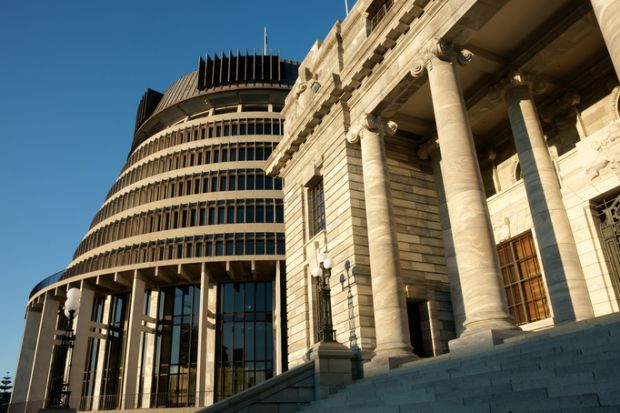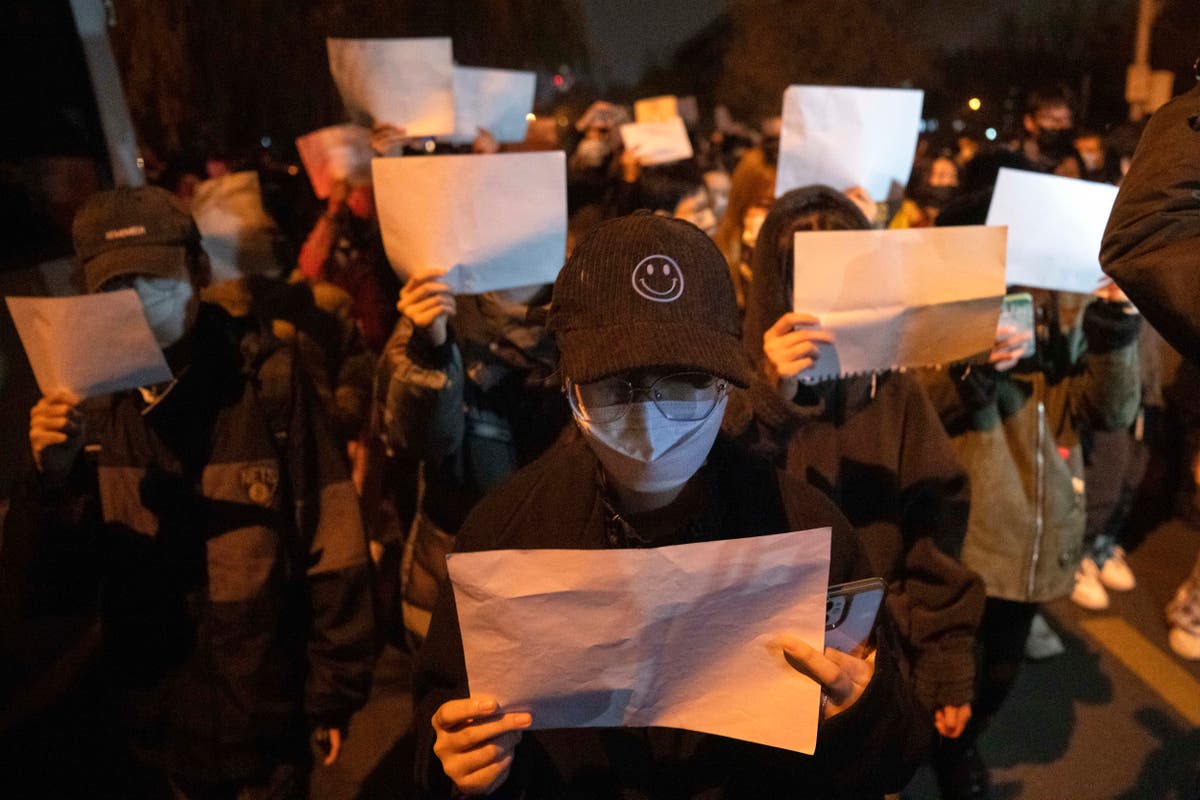Orangatamaliki from the inside

comment
A longtime employee of Oranga Tamariki, who requested anonymity, explained why he was no longer able to work for the state child protection agency, saying that despite having ample funds, the money was being spent where it was needed most. not
I’ve worked for government for more than half my life, starting with the Department of Social Welfare in 1980. I left Oranga Tamariki this year, realizing that his integrity as a social worker cannot be compromised by the organization.
I have a wealth of experience and have spent much of my career developing my skills.I have worked as a social worker, supervisor, and practice leader in hospitals, and after completing my graduate degree, I have a supervisory training offered to supervisors. supported the development of
Having spent so much time within the organization, it was more than just a job, it was part of my life.
I am happy to have met so many wonderful tamariki and rangatahi and their whanau.
We are well paid compared to our community colleagues and have a good vacation system, but I now allow these great working conditions to undermine my integrity. I am facing a challenge.
I have been working on the decision to leave Oranga Tamariki for quite some time in 2022, but my ethics are such that the hierarchy uses gaslighting and bullying, and the front lines carry a heavy burden without the support they need. I have decided that I can no longer allow you to stay where you are. Their decisions are made safely and we cannot control them alone.
I did not leave Oranga Tamariki bitter. The purpose of writing this article is not to help or help, but to support social workers, supervisors, practice leaders, and site managers who are constantly being criticized by organizations.
The concerns I have about this organization are: There are too few social workers on the front lines. Policies and procedures written for the organization are often too gaping and ignored by staff. The law seems to be ignored. And the hierarchy is too quick to put the blame on the social worker’s feet when things go wrong.
social worker scapegoat
One of the main problems is the lack of professional practice views, opinions and experience at many levels within Oranga Tamariki.
For a long time, practice was driven by key performance indicators such as factories. This never works in roles that involve contact and building relationships. I’m not saying this will give you the freedom to keep your case open, but we’ve worked effectively with how many unique children to identify their needs and ensure their safety, and we’ve done a load of cases. We need to know if we can keep it.
Social workers are staff who are made scapegoats for faults in processes and procedures.
There is no prioritization of social worker, supervisor, or practice leader roles. In fact, it is becoming increasingly apparent that these professional voices are lost within organizational hierarchies.
Social workers must be qualified – this is currently at least a four-year degree – as well as being registered with a professional agency (Registration Commission for Social Work). From my point of view as a social worker, my voice is not being heard, nor does it appear that the State Secretariat is interested in whether a policy works from a social work point of view. .
The people who write policies in the national office often don’t have a social work background, and senior managers don’t have a background that understands what social work is. The Oranga Tamariki Ministerial Advisory Committee noted in a report released last year that there are disconnects between sites, regions and national offices.
Most of the difficulty for me was the absolute lack of resources available to keep Tamariki and Rangatahi safe and free from ongoing harm. There, they had no choice but to try to cobble together a safe place for them, made up of shift caregivers and motel units. .
Leaving the office at the end of the day and wondering if the younger one is dead the next day, how much paperwork and requests you have to complete to see if there’s a 1% chance of a better outcome . It was a burden not only for social workers, but also for their supervisors, practice leaders and managers.
coal surface problem
Oranga Tamariki previously introduced a three-step approach to child and family assessment. This his three-step approach is that the National Contact Center conducts an initial assessment, where the informant is contacted to collect further information from them and possibly other interested parties, and that the report of this concern is made by the Olangatamaliki. It was meant to determine whether a
I didn’t have to talk to Tamariki or Whanau. As of her November 29th of this year, days before Chief Her Social Her workers reported the death of her 5-year-old Malachi Her Subetsu, the practice center was being modified and, if necessary, Whanau and You can now talk to Tamariki.
For sites where the National Contact Center does not do this, reports are sent directly to the site. The site was supposed to have an experienced social worker to do the initial assessment. Some sites lacked social workers with the necessary experience to take on this role and often turned to new social workers to take on this task.
There were also times when there was no social worker to assign and this created a backlog of cases. Some sites were able to allocate all the work, but caseloads were so high, others were allocating up to 20 children per social he worker.
The purpose of the core assessment phase is to work with the Whanau or family to assess the current and future safety and harm or potential for harm to Te Tamaichi and whether Te Tamaichi has needs that need to be addressed. and, if necessary, who is best to provide it. To provide those services and to inform you of decisions regarding Oranga Tamariki’s future engagements, such as family group meetings.
It was suggested that this process would only take 20 days. Where care or protection concerns are considered, or where identified welfare needs are likely to cause the child to suffer or be seriously harmed; Due to the complexity and breadth of our concerns, we may need to gather more information before making a decision. In that case, a full evaluation should be done before the family group meeting is held.
One of the key elements for social workers is building relationships. It’s not about telling Whanau what they’re doing wrong, it’s about listening to them, listening to what they see as their worries and concerns, and understanding their position.
Building a relationship within 20 days will never work, nor can you form a belief during that period because you have not built a relationship. convening a family group meeting) will not meet the needs of wānau.
board recommendations
Last September, the Oranga Tamariki Ministerial Advisory Committee presented the report to the organization It made recommendations to significantly improve its response to Maori, address organizational, institutional and professional issues, and encourage strong leadership, local accountability and safe working practices.
It recommended that collective Māori and community responsibility and authority must be strengthened and restored to guide the prevention of harm to tamariki and their whanau, and for three months after their release, the Māori It recommended that work was done in partnership with groups and communities to enable the transition. It was an effort to prevent, and strategies were urgently needed to address it.
The Board stressed that sufficient resources and powers must be shared equitably with Maori.
Much of the service and support that Oranga Tamariki currently provides to tamariki and their whanau will eventually be provided by Māori and community groups, and the primary role of social workers in Oranga Tamariki is to respond to emergencies and provide support for tamariki and whanau. you will have to navigate. Seek help immediately to ensure their safety and protection.
In order to work in partnership with Maori, community organizations and other government agencies, the purpose of the Oranga Tamariki needs to be clarified. This includes who is primarily there to provide services, what are the areas of Māori and community-led service delivery and support, and where it takes place. The responsibility of other government agencies should be to help improve performance in Tamariki and its Whanau.
There were also some specific recommendations aimed at reinforming the focus of social work in Oranga Tamariki. This includes the need to restore the position of the chief of Oranga Tamariki with influence over the entire institution as a central role for his social his workers, and the need to address the de-professionalization of the Oranga Tamariki workforce. It was included that there is Priorities should be set, including training and supporting supervisors and practice leaders.
Finally, to oversee the diversity and depth of change needed to guide and support Oranga Tamariki through the challenges they will inevitably face in the years to come, a national Oranga Tamariki It recommended that a governance committee should be established.
The Governance Board will be responsible for guiding the delegation of powers and resources to Māori communities and community groups to undertake many of the services currently provided by the Oranga Tamariki.
If Maori and community groups had the capacity, capacity and resources to do this this would be a great move. 10% of funding has been cut from the ministry due to restrictions on Oranga Tamariki offers little service other than providing needs and strengths assessments and funding other agencies to carry out identified support. Oranga Tamariki does not have a therapist, nor does it offer specific parenting programs or other services to assist wānau.
Recommendations from the Oranga Tamariki Ministerial Advisory Board were fully embraced by Acting Chief Executive Chappie Te Kani, but more than a year later we still see no change on the front lines. .
blame and shame
The social worker profession is a profession of hope, and as social workers we have a duty to be providers of hope.
Unfortunately, this very simple role does not seem to be supported by organizations critical of the social worker’s role. I wonder if people in upper management understand the role of social workers. Blaming and shaming seems to be a culture.
The values of an organization seem to fall short of those who work within it. I liken working at Oranga Tamariki to whanau affected by family harm. There, the youngest Social Her workers are at risk of serious harm and learning how to do it. the oldest.
I left to start a new role outside of a familiar place, and I dare say I was institutionalized, so I felt some dread.
https://www.newsroom.co.nz/oranga-tamariki-from-the-inside Orangatamaliki from the inside






